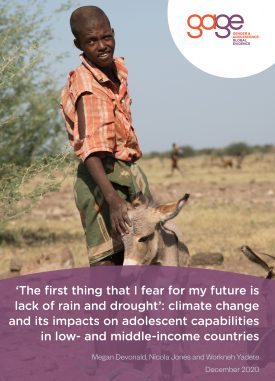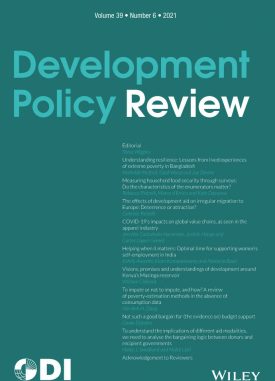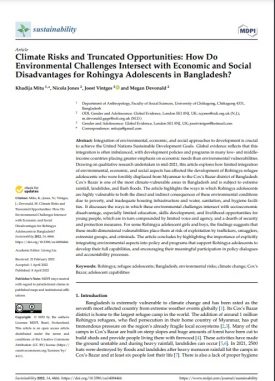The upcoming 28th session of the Conference of the Parties (COP28) of the United Nations Framework Convention on Climate Change (UNFCCC) will aim to accelerate climate action during a critical moment in history in terms of limiting global warming to 1.5 degrees. Adolescents (10–19 years) and youth (15–24 years) in low- and middle-income countries (LMICs) are already experiencing the intensifying impacts of climate change, and these challenges are compounded by intersecting inequalities based on young people’s identity, including gender, socioeconomic status, citizenship, and disability status.
Young people will not only be uniquely impacted by climate change, but will also inherit the responsibility of addressing global warming as it becomes ever more threatening to lives and livelihoods. In this policy brief, we review the current literature to explore the intersectional risks facing adolescents in LMICs due to climate change, underscoring the need to give greater attention to these compounding and intersecting challenges.
This brief has been produced by the Gender and Adolescence: Global Evidence (GAGE) programme and the International Institute for Environment and Development (IIED) and includes case studies from each programme.


